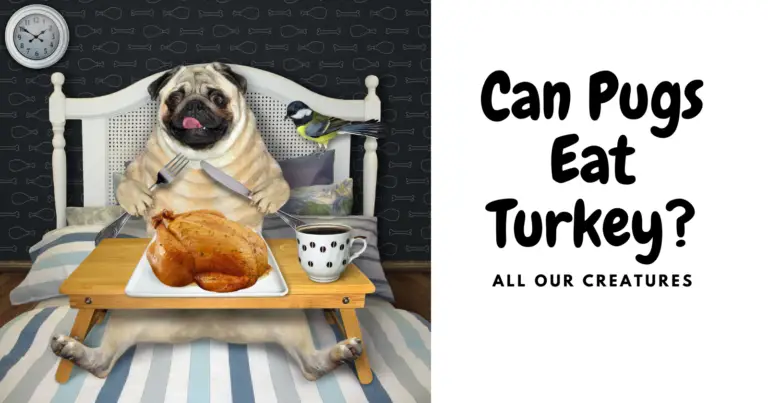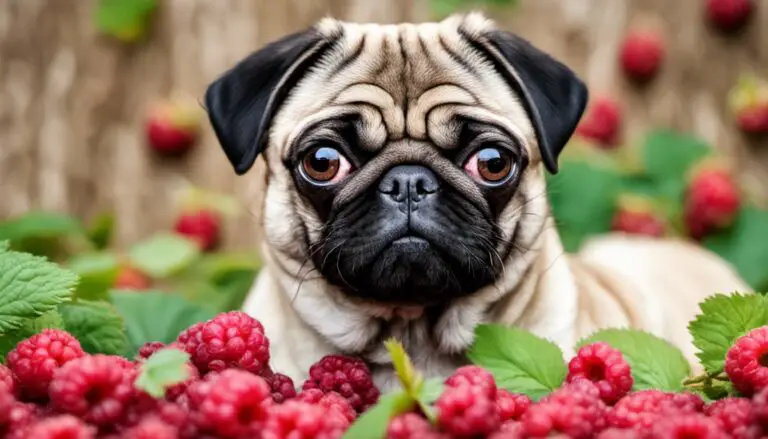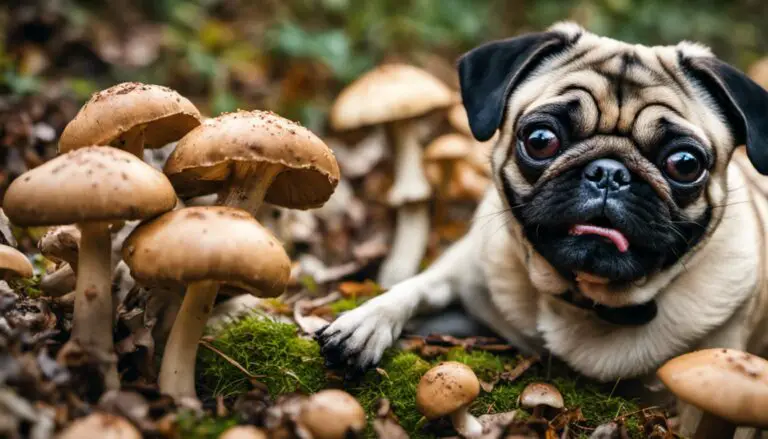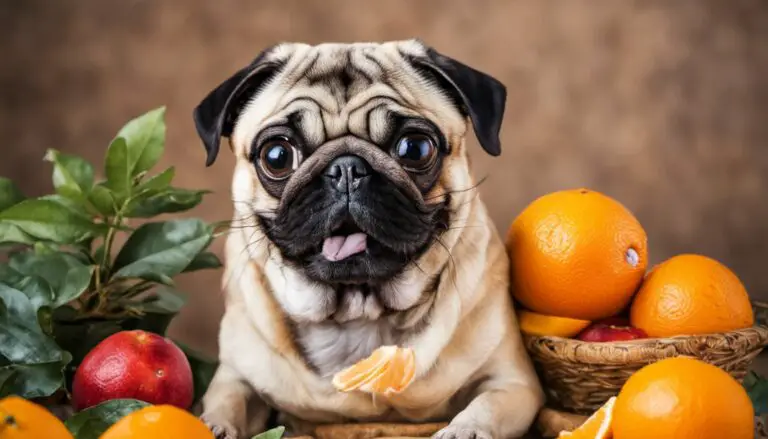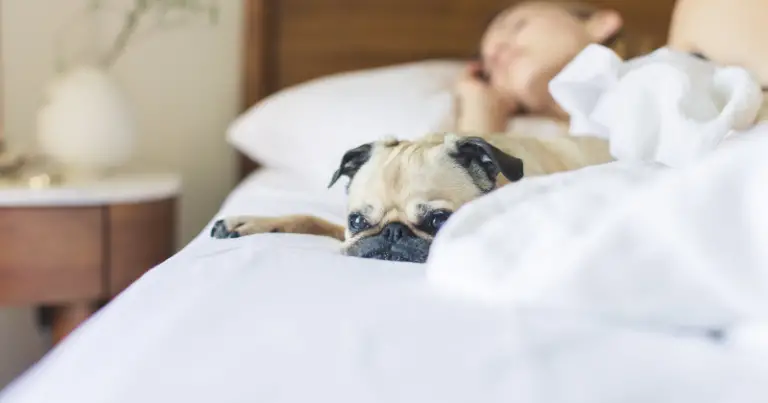Can Pugs Eat Human Food? A Clear Guide for Pet Owners
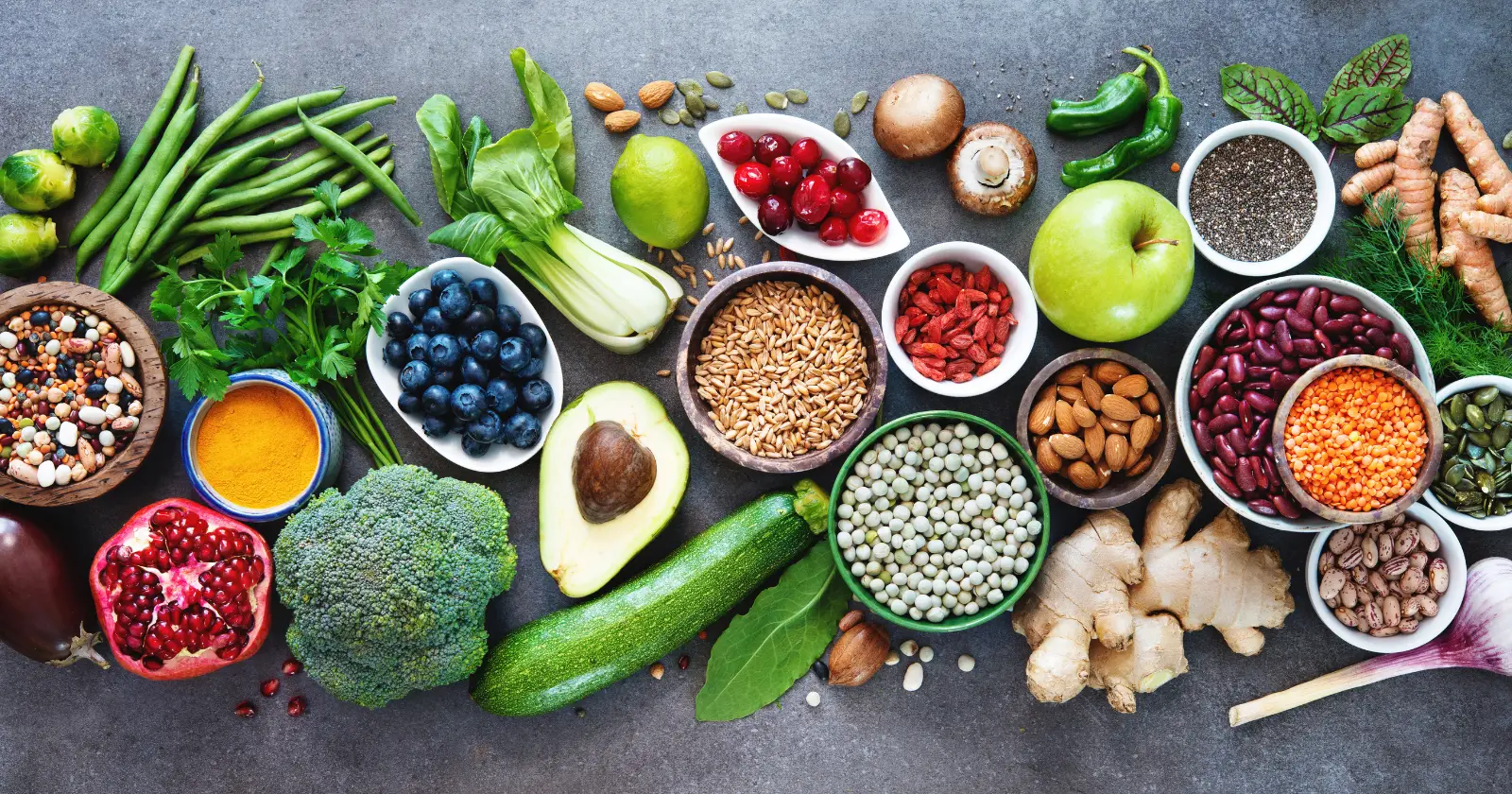
If you’re a pug owner, it’s natural to wonder, Can pugs eat human food? The answer is yes but with caution. Some human foods are safe and even beneficial for pugs, while others can be toxic and should be avoided. This article will outline various human foods that pugs can and cannot eat, helping you make the best decisions for your pet’s health.
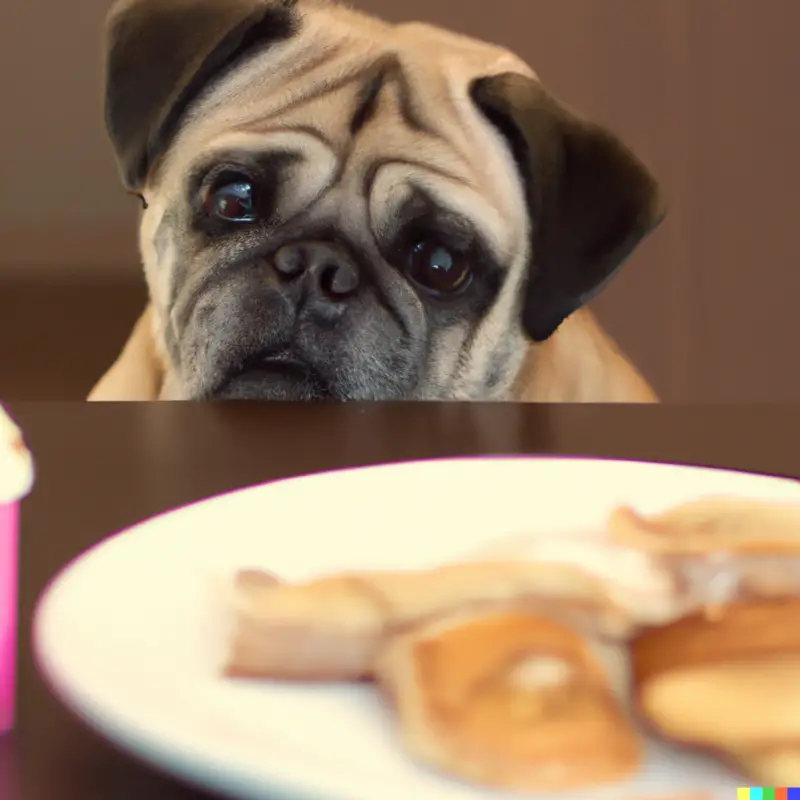
As a responsible pug parent, it’s essential to understand which foods are safe and in what quantities. Many pugs enjoy consuming fruits, vegetables, dairy products, and certain types of meat and fish. However, following the 10% rule when providing treats for your pug is crucial: treats should not make up more than 10% of their daily caloric intake.
While there is a wide array of human food options that your pug can safely eat, not all are created equal. Some are healthier and more nutritious than others. Additionally, certain human foods can be harmful to pugs, posing a risk to their health. As you read on, keep in mind that moderation is key, and always consult your veterinarian if unsure about introducing a new food to your pug’s diet.
Contents
Table of Contents
Pugs and Human Food
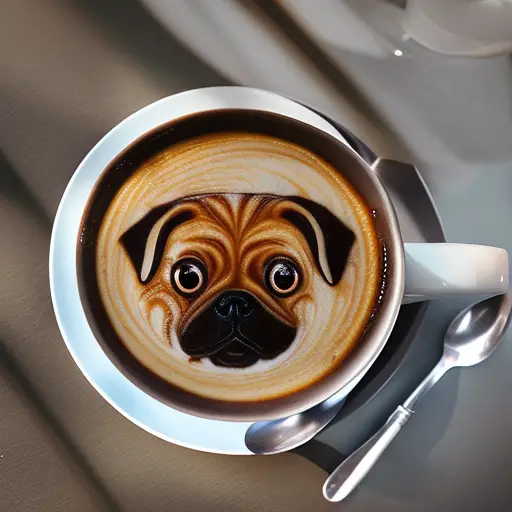
As a pug owner, you might be wondering if your furry companion can enjoy some human food as a treat occasionally. While it’s true that pugs can consume certain human foods, it’s essential to understand which ones are safe and which ones to keep off their menu.
Get The Free Food Eating Guide That Keeps My Pug Happy and Playful Even at 13 Years Old
100% Beginner Friendly & Lists Real Foods Your Pug Can Actually Eat!
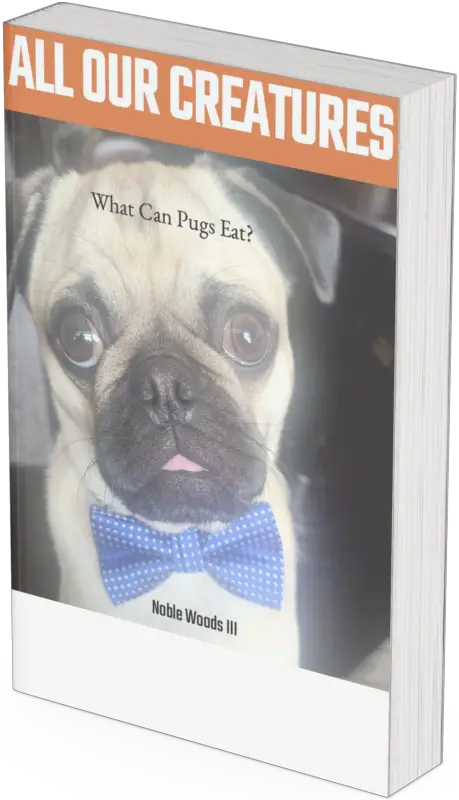
Pugs can enjoy various human foods, such as:
- Meat: Beef, chicken, and pork are excellent sources of protein for your pug. Make sure the meat is cooked thoroughly and avoid giving them any bones.
- Fish: Cooked fish like salmon, tuna, and mackerel are also good for your pug. But, ensure that you remove all bones and avoid giving them raw or undercooked fish.
- Dairy: Small amounts of plain yogurt can be a tasty treat for pugs. However, be cautious, as some pugs may be lactose intolerant.
- Grains: Oatmeal, pasta, and rice, served in moderation, can be a healthy addition to their diet. Just cook them without seasoning or extra fats like butter or oil.
It’s crucial, however, to consult your vet before introducing any new food into your pug’s diet. Keep in mind that human foods should not make up more than 10% of your pug’s overall calorie intake. Additionally, some human foods are toxic to pugs and should be avoided. These include:
- Chocolate
- Avocado
- Onion
- Grapes
- Caffeine
- Alcohol
- Macadamia nuts
When treating your pug to human food, remember to keep the portions small and ensure that they receive a well-balanced diet designed for pugs. Following these guidelines will help you provide your furry friend with a healthy and happy life.
Benefits of Human Food
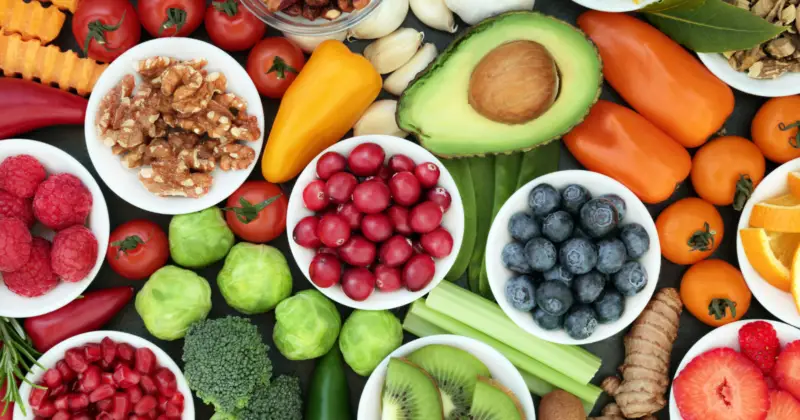
Protein-Rich Foods
Providing your pug with protein-rich foods is essential, as it helps build and maintain strong muscles. Some examples are beef, chicken, and fish like salmon and tuna. These sources of protein also supply essential amino acids, contributing to your pug’s overall health.
Fresh Fruits
Incorporating fresh fruits into your pug’s diet can provide an excellent source of vitamins, minerals, antioxidants, and fiber. Fruits like apples are beneficial for your dog’s well-being and serve as tasty treats. However, be cautious about the portions and always remove seeds before feeding, as some can be harmful.
Fresh Vegetables
Just like fruits, fresh vegetables are packed with essential nutrients. Carrots, for instance, are low in calories and rich in fiber and beta-carotene. Other dog-friendly vegetables include green beans and sweet potatoes. Always remember to serve them in moderation, as excessive amounts can cause digestive issues.
Importance of Water
Lastly, don’t underestimate the importance of water for your pug’s overall health. Proper hydration ensures that essential nutrients are distributed throughout the body and helps regulate your dog’s body temperature. Be sure to regularly provide fresh water for your pug, especially during hot weather or after exercise.
Risks of Human Food
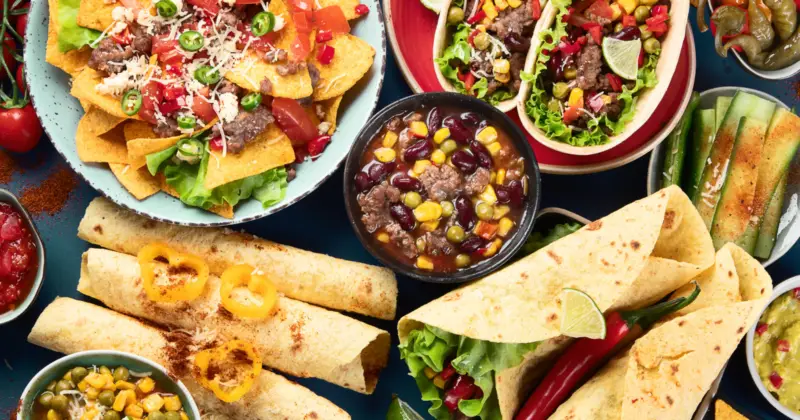
Toxic Foods
Some human foods can be toxic to pugs, causing serious health problems or even death. Avoid feeding your pug foods like chocolate, garlic, and onions, as they can lead to poisoning. Also, refrain from giving your pet caffeine, as it can harm dogs.
Choking Hazards
Be cautious when giving your pug food items that might be choking hazards, like raw bones or large chunks of fruits and vegetables. Cut these foods into smaller pieces to prevent any difficulties for your pet. Foods such as fruit pits, whole grapes, or mozzarella sticks can also pose a choking risk, so keep these away from your pug.
High-Calorie Foods
Feeding your pug high-calorie, fatty foods can lead to obesity and other health concerns like diabetes or heart issues. It is important to monitor your pet’s caloric intake and maintain a balanced, healthy diet. Opt for lean meats, whole grains, and fresh fruits and vegetables instead of high-calorie snacks to maintain your pug’s overall health.
Unhealthy Ingredients
Human foods often contain unhealthy ingredients like salt, sugar, or artificial additives that are not suitable for dogs. Be mindful of the content of the foods you are giving to your pug, and try to stick to natural, minimally processed options. By doing this, you can ensure that your pug stays healthy and avoids consuming ingredients that might not be appropriate for their diet.
Choosing the Right Human Food
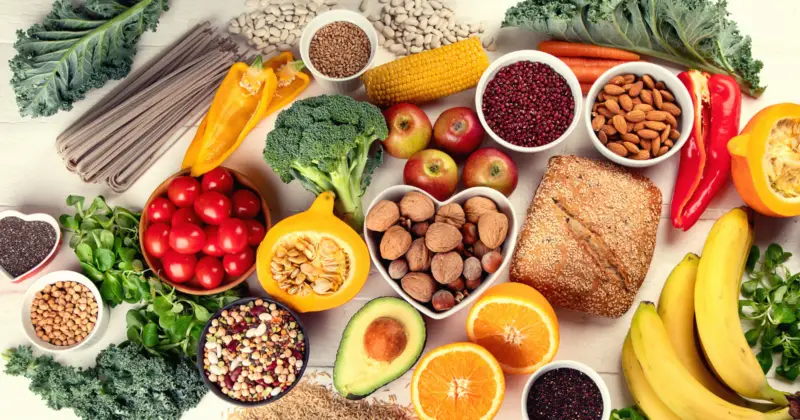
Consultation with Vet
Before introducing human food into your pug’s diet, it is essential to consult with your vet. They can provide guidance on how different foods may impact your dog’s health and recommend suitable options for your pug’s specific dietary needs. Remember, every pug is unique, and having expert advice ensures that your furry friend receives the best nutrition possible.
Understanding Different Foods
Your pug’s diet should contain an appropriate balance of protein, carbohydrates, and fats. Human foods can be a great addition to their diet if chosen carefully and fed in moderation.
Protein is essential for maintaining your pug’s muscle mass, coat health, and overall vitality. Some safe protein sources include lean meats like chicken, turkey, beef, and fish such as salmon. Make sure to cook the meat thoroughly and remove any bones before serving. Keep in mind that high-fat meats or large amounts of processed meats may cause increased cholesterol levels and contribute to weight gain.
Carbohydrates are also an important part of a balanced diet, providing your pug with the energy they need for daily activities. Foods such as rice, pasta, and oatmeal are excellent sources of complex carbohydrates that can be added to your pug’s meals, but make sure to serve them plain without any added sauces, spices, or seasoning.
It is crucial to understand that not all human foods are safe for your pug to consume. Foods like chocolate, avocados, grapes, and onions are toxic to dogs and should be strictly avoided. Be cautious and thoroughly research before introducing a new food into your pug’s diet. It’s always better to err on the side of caution to keep your furry friend happy and healthy.
Can Pugs Eat Human Food? Watch this
Food Recommendations
Safe Fruits and Vegetables
Pugs can safely enjoy a variety of fruits and vegetables. Carrots are a great choice, as they provide both fiber and beta-carotene in moderation (source). Apples and broccoli are also good options for these furry friends. Make sure to remove any seeds or cores when offering apples to your pug, as seeds can be harmful.
Introducing new fruits and vegetables slowly is important to avoid gastrointestinal upset and monitor for any adverse reactions. Feed these treats in moderation to maintain a balanced diet.
Lean Meats and Fish
Your pug can benefit from lean meats and fish in their diet. Sources of protein like chicken, turkey, beef, and fish are excellent options (source). When feeding meats, make sure to remove any spices, onions, garlic, and avoid adding salt. Be mindful of bones when offering fish, as they can be hazardous for your pug. As with fruits and vegetables, introduce new proteins slowly and feed in moderation to maintain a balanced diet.
Other Food Options
There are other human food options that your pug can enjoy as well. Eggs are a nutritious treat when cooked plain; they provide a good source of protein and essential nutrients. Rice makes a great addition to your pug’s meal, as it can help to settle their stomach if they are experiencing gastrointestinal issues. Bread can be offered in small amounts, without any added ingredients like raisins or nuts that could be harmful. Another tasty treat for your pug is peanut butter, but be sure it does not contain the toxic sweetener xylitol. Always check the label and offer peanut butter in moderation.
Incorporate these food options into your pug’s diet responsibly, ensuring you maintain their overall health and well-being.
Frequently Asked Questions: Can Pugs Eat Human Food
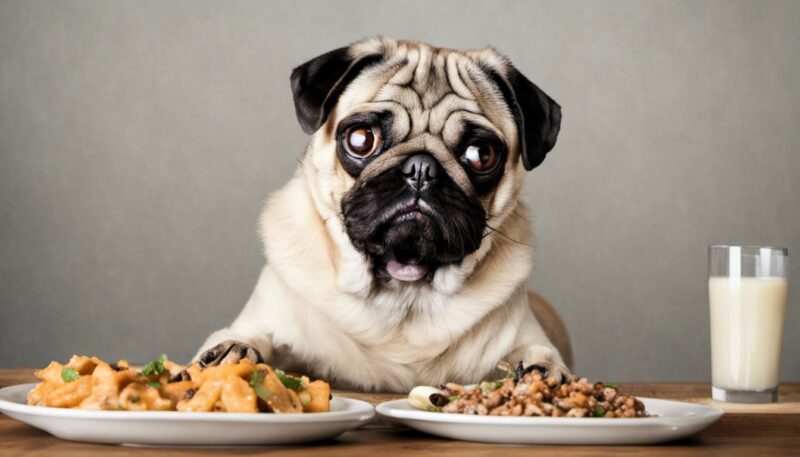
Can pugs safely consume popular fruits?
Yes, pugs can safely consume certain popular fruits such as apples, bananas, and watermelon. However, always remove the seeds and pits, as they can pose choking hazards or contain harmful substances. It is also important to feed fruits in moderation, as excessive sugar intake may lead to obesity or gastrointestinal issues in pugs. Pet Heral
What common vegetables are dangerous for pugs?
While many vegetables are healthy for pugs to consume, some common ones are dangerous, including onions, garlic, and mushrooms. Onions and garlic can cause gastrointestinal issues and damage red blood cells, potentially leading to anemia. Mushrooms may contain toxins that can harm your pug. Always consult your veterinarian before introducing new vegetables into your pug’s diet.
Are ingredients like onion and garlic safe for pugs?
No, onion and garlic are not safe for pugs. These ingredients can cause gastrointestinal issues and damage red blood cells, potentially leading to anemia. Be cautious when feeding your pug human foods, as some may unknowingly contain onion or garlic. PatchPuppy
Can pugs eat nuts such as macadamia nuts and almonds?
It is generally not advisable to feed pugs nuts, especially macadamia nuts and almonds. Macadamia nuts are toxic to dogs, causing vomiting, tremors, and even temporary paralysis. Almonds can pose a choking hazard and are difficult for dogs to digest, leading to gastrointestinal issues. Stick to safer treat alternatives for your pug. Pet Heral
Is there a risk in giving chocolate to pugs?
Yes, there is a significant risk in giving chocolate to pugs. Chocolate contains theobromine, a substance that is toxic to dogs, even in small amounts. Chocolate consumption can lead to vomiting, diarrhea, increased heart rate, seizures, or death. Keep chocolate away from your pug at all times. Pet Creeks
What is the best alternative to dog food for pugs?
If you are looking for alternatives to commercial dog food for your pug, consider offering them lean meats like turkey, chicken, pork, beef, and salmon. These meats should be unseasoned and cooked without onions or garlic. Other healthy alternatives include raw yogurt and cheese, but always consult your veterinarian before making changes to your pug’s diet. PatchPuppy

